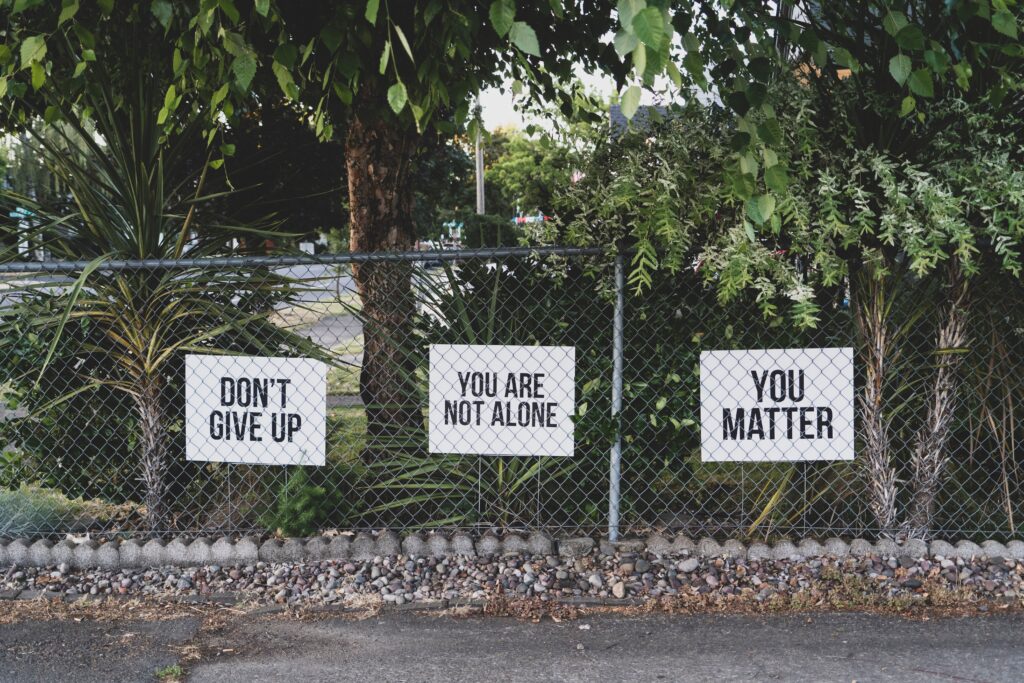
World Mental Health Day, celebrated annually on the 10th of October, serves as an important reminder of the global significance of mental health issues and, more specifically, the challenge of suicide.
Organized by the World Federation for Mental Health, this day has garnered support from organizations such as the World Health Organization (WHO), the International Association for Suicide Prevention, and United for Global Mental Health. In this article, we will go into the importance of World Mental Health Day and the role each of us can play in preventing suicide.
The Scale of the Issue
Suicide is a pressing global concern that transcends borders, cultures, and socio-economic backgrounds. According to the World Health Organization, approximately 800,000 people die by suicide each year, making it the second leading cause of death among individuals aged 15 to 29. These staggering statistics underscore the urgency of addressing mental health issues and suicide prevention on a global scale.
World Mental Health Day
World Mental Health Day serves as a beacon of hope, shining a light on the darkness that often surrounds mental health struggles. It provides an opportunity for individuals, communities, and organizations to come together and collectively advocate for better mental health outcomes.
The theme of World Mental Health Day varies from year to year, addressing different aspects of mental health. Each theme serves as a catalyst for awareness and action, encouraging conversations that challenge stigma and discrimination.
The Role of Awareness
One of the primary objectives of World Mental Health Day is to raise awareness about mental health issues and the prevalence of suicide. Awareness campaigns, educational events, and media outreach efforts are instrumental in dispelling myths and misconceptions surrounding mental health.
By fostering a greater understanding of mental health, we can reduce stigma and discrimination, ultimately encouraging individuals to seek help when they need it. Awareness also plays a crucial role in empowering communities to recognize signs of distress in their loved ones and offer support.
Preventing Suicide: A Shared Responsibility
Each of us can make a meaningful difference in someone’s life by taking simple yet impactful actions.
Here are some steps we can all take:
- Be a Good Listener: Often, all someone needs is a compassionate and non-judgmental ear to talk to. Be there for your friends and loved ones when they need to vent or share their feelings.
- Educate Yourself: Learn about the warning signs of suicide and how to respond to them. Understanding the signs can help you provide timely support to someone in crisis.
- Promote Mental Health: Encourage open conversations about mental health in your community and workplace. Advocate for policies that support mental well-being.
- Seek Help: If you or someone you know is struggling with mental health issues or thoughts of suicide, don’t hesitate to seek professional help. There is no shame in asking for assistance.
Statistics in Malta
Malta, with its population of over 535,000 residents, faces significant challenges related to mental health. Recent estimates suggest that approximately 120,000 individuals in the country contend with mental disorders. These issues manifest with varying prevalence rates, with 6.6% of the local population experiencing depression, 7.8% grappling with anxiety, and 0.026% dealing with schizophrenia. Notably, asylum seekers experience a higher prevalence of schizophrenia, at 0.4%.
Alarmingly, it has been reported that around 25.2% of individuals below the age of 14 in Malta are at risk of developing a mental disorder, surpassing the European average. These statistics underscore the urgent need for enhanced mental health awareness, support, and services in the country.
Seeking help in Malta
Certainly, seeking help for mental health is important for individuals in Malta, as it is in any other place. In Malta, there are several avenues for people to seek assistance and support for their mental health concerns.
- Public Health Services: The Maltese government provides mental health services through various public health centers and hospitals. Individuals can access mental health care by contacting their local health clinic or hospital and requesting an appointment with a mental health professional. These services are often available free of charge or at a subsidized cost.
- Outpatient Clinics: Malta has outpatient mental health clinics that offer counselling, therapy, and psychiatric assessments. These clinics can be accessed through referrals from general practitioners or by self-referral. Professionals at these clinics can provide a range of services, including therapy and medication management.
- Mental Health NGOs: Several non-governmental organizations (NGOs) in Malta focus on mental health support. These organizations offer a variety of resources, including counselling, support groups, and educational programs. One prominent example is Richmond Foundation, which is dedicated to promoting mental well-being.
- Helplines and Crisis Services: Malta also offers helplines and crisis intervention services for individuals in immediate distress. Services like “Appogg Supportline” provide 24/7 telephone support for those in crisis. The professionals on these helplines can offer immediate assistance and guidance.
- Private Practitioners: Many private psychologists, psychiatrists, and therapists practice in Malta. Individuals seeking private care can locate and contact mental health professionals directly or through recommendations from their general practitioners.
- Online Resources: In recent years, online mental health resources and teletherapy options have become more accessible in Malta. Some organizations and professionals offer virtual counselling and support services, which can be especially useful for those who prefer remote assistance or face geographical constraints.
- Employer Assistance Programs: Some employers in Malta provide Employee Assistance Programs (EAPs) that offer confidential mental health support to their employees. These programs may include counselling services or referrals to mental health professionals.
Keep in mind
| Kellimni.com | 24/7 | 99339966 |
| Crisis Solution Malta | 24/7 | https://kellimni.com/ |
| Support Line 179 | 24/7 | 179 |
Conclusion
World Mental Health Day serves as a powerful reminder that mental health matters and suicide is preventable. By coming together on this day and throughout the year, we can foster a more supportive and understanding world for those facing mental health challenges. Let us take this opportunity to learn, raise awareness, and work collectively to prevent suicide, one life at a time.





